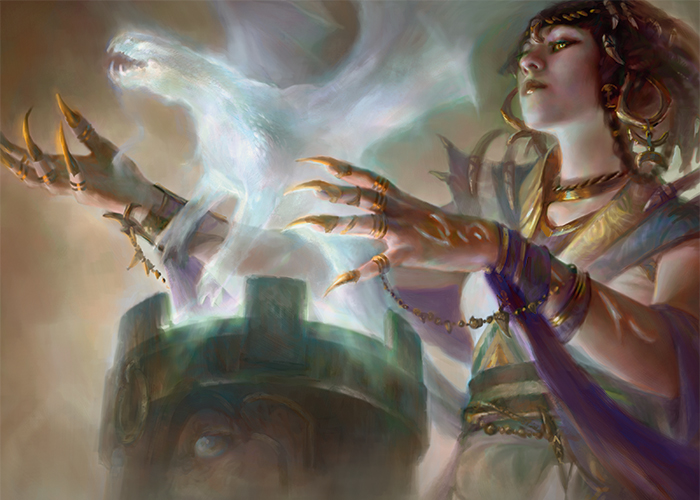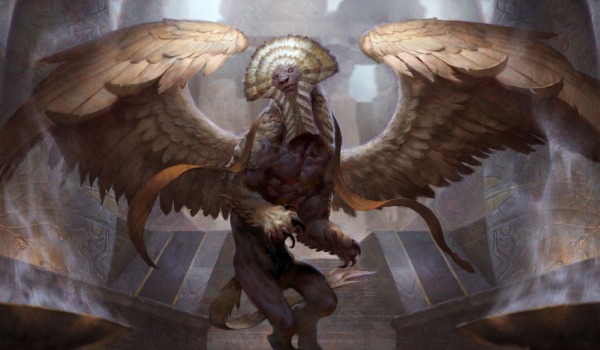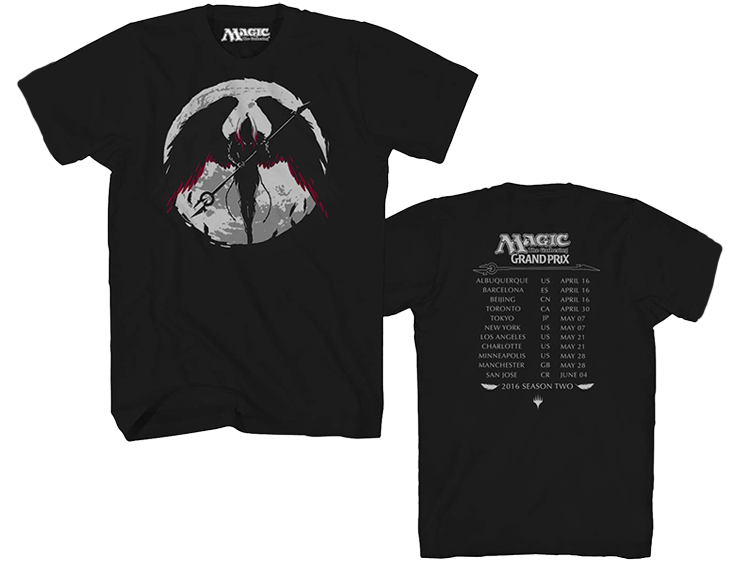Are you a Quiet Speculation member?
If not, now is a perfect time to join up! Our powerful tools, breaking-news analysis, and exclusive Discord channel will make sure you stay up to date and ahead of the curve.
As many of you may be aware, last weekend there was a Limited Grand Prix in the sunny city of Orlando. As you may not be aware, Orlando is also the city I currently call home, so it was an easy decision for me to make my way down to enjoy the event.
There are tons of things that players do at every Grand Prix that spew tons of value. In this article, I want to talk about the best ways to be prepared to buy and sell cards, as well as what events to prioritize playing in.
Before the Grand Prix
The four most common things I see people do at Grand Prix are play events, buy cards, sell cards, and visit artists. The best way to get the most out of your time and money is to make sure you plan your activities for efficiency beforehand. You need to figure out if you're playing in the main event or just side events. You need to make a list of cards that you want to buy or sell. And you need to make sure, if you're planning to buy prints or get cards signed, that you know which artists will be attending and have their cards ready at the event.
Events
As far as I'm concerned, at this point, playing in the main event is the worst thing you can do at most Grand Prix. The time commitment to Magic is pretty high, and if you are not able to attend many Grand Prix, your time is almost assuredly better spent playing side events. The extraordinary cost of entering the main event is also another prohibiting factor if you are unsure if you will be able to place high enough to make money. I've played in many main events and have only "cashed" one (GP Pittsburgh 2015). I'll be the first to admit, they're not as fun as they look. They're long and it's grueling and your margin for error is very small. If you do decide to play in the main event, make sure you pack a sufficient amount of snacks and water to keep yourself fed and hydrated throughout the day.
If you decide not to play the main event, you will have tons of choices for side events. The first step is to go to the website for the event to find out what specials are going on. The easiest way to make sure you find it is through Wizards's Grand Prix website. If you're going to GP San Antonio (because it's Team Unified Modern, why wouldn't you?), then you can see the side event schedule here. Friday is usually the best day to play side events, and I would recommend if you're making travel plans to try to arrive Thursday nigh,t because Friday is probably the best day of the Grand Prix. If you're scheduling out your day, I would recommend expecting each round to take about 60 to 65 minutes plus adding 60 minutes for Sealed or Draft events to make your deck. With the scheduled events, you can easily play one in the morning before leisurely getting lunch and then playing more in the afternoon or evening. The main event doesn't allow you this luxury, so make sure you bring lunch or have a reliable friend to get you food. You may not have enough downtime to eat if you are playing a slower deck.
Prize support
Every North American (and I assume European and Asian) Grand Prix pay out side events in prize wall tickets. These are useful for buying weird niche products like From the Vaults or more common Standard-legal booster packs. What I would recommend is also taking a look at some of the things that can make the event more special and memorable.
Something that a lot of people don't know is that every Grand Prix has a themed shirt that is available on the prize wall for the most recent set. There is a new shirt for each GP season (every set release) and they're usually pretty sweet. This weekend is still part of the GP season for Aether Revolt, so you can still pick up a Tezzeret shirt to remember your experience by! I couldn't find a great picture of the shirt itself, but here's what the art design looks like. I got a leftover Chandra shirt from the last GP season and a Tezzeret shirt last weekend to go with my Ulamog and Kozilek shirts.
Buying Cards
I purchase cards a lot like I try to purchase groceries: I make a list of what I want before I get to the store and make sure to cross it out as I go up and down the aisles. It helps to prevent me from forgetting a card, but doesn't really help to curb impulse buying.
With Magic cards, I also make sure to write down how much I am willing to pay. Generally this means researching on TCGplayer the morning of the event to find the price of a card.
For example, this last weekend, I wanted to finish my Storm deck and play it in some side events. I was missing three Blood Moons ($20), Shattering Spree ($5), and Pyretic Ritual ($1). I knew that most, if not all, of the vendors are likely to have Blood Moon in stock. It's a staple rare that tons of people need. Shattering Spree and Pyretic Ritual were going to be harder to find, so it is was good to know roughly how much I should expect to pay.
The price of Blood Moon varied a lot on Friday morning. I saw prices between $22 and $30 from most vendors. I was able to find a vendor that had their Blood Moons listed for $18. I already knew I was expecting to pay $20 and most vendors were above that, so I decided I was not likely to find a better deal than $18. I wasn't able to find any vendors other than Star City with a Pyretic Ritual but Star City's were $1, so it wasn't a big deal. I was also able to find a vendor that had Shattering Spree for only $3, and thanks to my prior research I knew I this was a good deal.
The point of this story is really to know that if you know the price of the cards you want before going to the vendor booths, you are less likely to regret your purchase by finding it for cheaper later in the day. I saved myself $4 per copy by not purchasing the $22 Blood Moons, despite them being "close enough" to my target number. Sometimes you won't be able to find the cards you want for cheaper and it will feel bad to pay extra, but your only other choice is to not have the cards at all.
In my experience, cards that are harder to find you will likely have to pay a premium on. I've seen some Modern players have the toughest time finding the cards they want due to the size of the format. Many players venture from vendor booth to vendor booth looking for foil Cursecatchers or Simplified Chinese Planeshift Terminates. The little quirky things that people like to add to their decks are much, much harder to find than a set of Expedition fetch lands or any version of Tarmogoyf.
Make sure you temper your expectations, because not everything will be for sale. If you can avoid it, don't go looking for low-dollar value commons or uncommons. Pyretic Ritual was much more difficult to find than I expected and was imperative to play the deck I wanted to play. My last piece of advice is to make sure you do your shopping on Friday or Sunday. Friday will have the biggest stock and Sunday will have the best prices (as most vendors don't want to leave with cards if they don't have to).
Selling Cards
Selling cards is an art if you do it correctly. If you're selling a few cards (probably five or less) that are very popular, you can avoid talking to anyone and just take a peek at the hot list posted near the vendor booth. You really want to decide before you get to the Grand Prix two things: "Are you going to buy cards with the money you get from selling cards?" and "What is the online buylist price of this card right now?"
Armed with this information, you can make the best decision of what you want to do with your cards. If you plan to buy more cards after selling cards, you may want to consider a store that offers a trade-in bonus. Cool Stuff, Inc., for example, offers a 30-percent bonus if you trade in for credit instead of cash. This can end up saving you more money than if you sell your cards to another vendor that offers ten percent more cash value.
The next big time-saver is making sure your cards are sorted. I would recommend if you have a lot of cards to separate them by how much money you expect to get from them. For example, if you expect to buylist a card for $2, group it in the box with other cards that also buylist for $2. It makes it easier for you to tell if the store you're selling to is not paying the best. This is also known by a lot of Magic finance people as "Ogre-ing," and you can find some more articles on the practice here on Quiet Speculation if you want to go more in depth on the topic.
The bottom line is to make sure your cards are de-sleeved and sorted by price. It will make the process much faster than having someone flip through your binder while you hem and haw about the numbers they offer.
Artists
I don't know how familiar you are with the art of the game, but it turns out people have to paint everything that goes onto a Magic card. That's so cool, right?
Well, a lot of them also play Magic (Noah Bradley played both days of the Grand Prix from his booth). If you are going to your first Grand Prix, I would recommend setting aside some time to go visit the artist booths and see what they have to offer. Many artists will have prints of their more popular art available for purchase and will sign your cards for a nominal fee.
I will warn you that getting your cards signed by the artist does not increase their value. Please don't get cards signed because you think they will be worth more. They may be worth more to specific people, but generally speaking, they are worth less than a similar-quality card because they've been marked. Artist signatures are not for everyone, but if you have some cards that really mean a lot to you, then you can make them extra special with a signature.
Artists will also sometimes have tokens, playmats and other assorted related goodies for sale at their booth. It's important to know that they are not paid to be there, so if you want to show your support, then you can buy something from them so they can keep making awesome Magic art.
Final Thoughts
Here's some rapid-fire bulletpoints I'll finish this week's article with:
- Grand Prix are great if you treat them as a convention and not a tournament.
- Cycling is back in Amonkhet and people have adjusted accordingly by buying Living End. The deck certainly can't get worse.
- The Amonkhet Invocations are unreadable and a disappointment.
- Storm is great but Surgical Extraction is a real bummer.
- Pineapple is fine on pizza, just not pizza I intend to eat.








